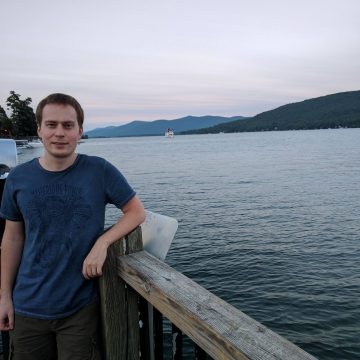Alumnus Spotlight: Adem Efe Gencer, Ph.D. ’17
High-Demand Cornell Dissertation
 Adem Efe Gencer, Ph.D. ’17, is an alumnus of the computer science program at Cornell who now works at LinkedIn as a staff software engineer. His dissertation on blockchain is the most retrieved Cornell dissertation in the ProQuest database over the past eight years.
Adem Efe Gencer, Ph.D. ’17, is an alumnus of the computer science program at Cornell who now works at LinkedIn as a staff software engineer. His dissertation on blockchain is the most retrieved Cornell dissertation in the ProQuest database over the past eight years.
Congratulations on having the most retrieved Cornell dissertation in the ProQuest database over the past eight years with over 1,200 downloads. Why do you think it was so popular?
My dissertation explored how to improve scalability of blockchains while maintaining their fundamental premise of decentralization. First, it introduced a blockchain protocol designed to provide scale for services involving frequent, high-volume interactions. Then, it specified a secure sharding technique for blockchains and showed application of it on a new protocol that scales with increasing number of services. Finally, it provided the means to assess the viability of different scaling solutions along with a multi-year measurement study on an infrastructure that spans five continents. Overall, these contributions facilitated in moving the scalability debate in the blockchain community to a scientific, quantitative foundation, which I believe was the key driving force behind the popularity of my dissertation.
How did your Cornell graduate education prepare you to succeed professionally?
My graduate education taught me how to ask the right research questions, develop techniques to answer them, and convey my objective scientific findings. The process also enabled me to perform under pressure and deliver high-quality results, which I have greatly benefited from professionally.
Tell us about your current position and what you find rewarding about it.
I develop Apache Kafka and the ecosystem around it and support their operation at LinkedIn. In particular, I work on the design, development, and maintenance of Cruise Control — a system for alleviating the management overhead of large-scale Kafka clusters at LinkedIn.
Most of the work that I have been doing at LinkedIn is open source. So, this enables me to present what I do at conferences and other companies, and collaborate with professionals from both industry and academia.
If you could go back in time to the beginning of your graduate career, what advice would you give yourself?
Make sure you use the resources of Cornell — both academic and social. Keeping in touch with your fellow Ph.D. students will make you realize that you are not alone in this journey.

